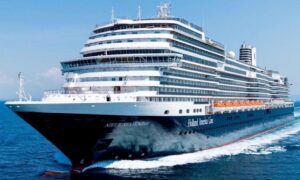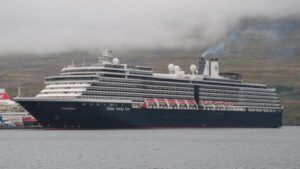An Unusual Type of Cruise Has Grown Increasingly Popular With Adventurous Retirees
Cruising has long been associated with luxury, relaxation, and all-inclusive pampering, typically favored by older travelers seeking comfort and leisure. However, a surprising trend is taking root: a growing number of retirees are opting for adventure and expedition cruises over traditional ones. These new-style voyages prioritize exploration, education, and rugged, off-the-beaten-path destinations—transforming the stereotype of senior cruising in the process.
Expedition Cruises on the Rise
At the heart of this movement are expedition cruises, a specialized niche in the cruise industry that takes passengers to remote and often extreme destinations—think Antarctica, the Galápagos Islands, the Arctic Circle, and even Papua New Guinea. Unlike the mega-ships that accommodate thousands, expedition vessels are smaller, often carrying just 100 to 200 passengers. This allows them to navigate narrower waterways and access areas larger ships cannot reach.

According to data from the Cruise Lines International Association (CLIA), bookings for expedition-style cruises among travelers aged 60 and above have surged by over 35% in the past two years. Operators like Hurtigruten, Lindblad Expeditions, Ponant, and Viking’s expedition division have responded by expanding their fleets and itineraries to cater to this demographic.
Why Retirees Are Choosing Adventure
So what’s driving this shift? For many retirees, it’s about more than just sightseeing—it’s about meaningful, once-in-a-lifetime experiences. After decades of working and raising families, many retirees now have the freedom, time, and financial means to pursue deeper travel. They’re trading shuffleboard and poolside cocktails for glacier trekking, whale-watching, and cultural immersion in far-flung communities.
“There’s a growing desire among older travelers to be challenged and inspired,” says Dr. Karen Winslow, a sociologist who studies aging and lifestyle. “They want to learn, to explore, to come back with stories—not just souvenirs.”
Retired teacher Tom Sullivan, 68, recently returned from a 14-day Antarctic expedition and describes it as life-changing. “We camped on the ice, saw penguins up close, and listened to marine biologists explain everything. It felt like I was back in school—in the best way.”
Learning and Enrichment at Sea
Expedition cruises often come with robust enrichment programs, including lectures by historians, scientists, and naturalists. Onboard activities may include photography workshops, language lessons, and documentary screenings. For retirees who value lifelong learning, this adds a compelling layer to the travel experience.
Companies like National Geographic Expeditions and Swan Hellenic offer itineraries where guests can assist in scientific research or conservation efforts, such as tracking wildlife populations or gathering climate data. These participatory experiences are particularly appealing to retirees who are eager to contribute or engage with global issues in a hands-on way.
Comfort Meets Curiosity

While these cruises are adventurous, they’re far from uncomfortable. The newer generation of expedition ships features high-end accommodations, gourmet dining, spas, and advanced safety equipment. This blend of rugged exploration and refined comfort is especially attractive to older travelers who want both adventure and amenities.
The ships are also designed with accessibility in mind. Many provide mobility support, elevators, and medical staff onboard, ensuring that older travelers can enjoy demanding destinations without compromising their safety or health.
Solo and Group Travelers Alike
Another factor contributing to the rise of adventure cruising among retirees is the increasing number of solo travelers. Cruise lines have made adjustments to better serve this growing segment, offering single-occupancy cabins and waived solo supplements on select trips. This allows widowed, divorced, or single retirees to explore the world on their own terms, while still enjoying the safety and social benefits of group travel.
Additionally, travel clubs and retirement communities are organizing group expedition trips, making it easier for retirees to embark on such adventures with friends or peers.
Sustainability and Ethical Travel
Many retirees today are also motivated by ethical and environmental concerns. Expedition cruise operators have responded by emphasizing sustainability, using hybrid-powered vessels, banning single-use plastics, and partnering with local communities. These efforts resonate with retirees who want their travel choices to reflect their values.
The Future of Retiree Travel
The growth of adventure cruising among retirees is redefining what it means to age actively. With better health, more disposable income, and a desire to engage with the world, today’s retirees are turning away from passive vacations and toward transformational journeys.
In response, the cruise industry is adapting, designing experiences that cater to curiosity and a zest for discovery. As 65 becomes the new 45 for many active older adults, don’t be surprised if your next expedition partner is a retired engineer summiting an ice ridge in Greenland or a former nurse photographing sea lions in Patagonia.













